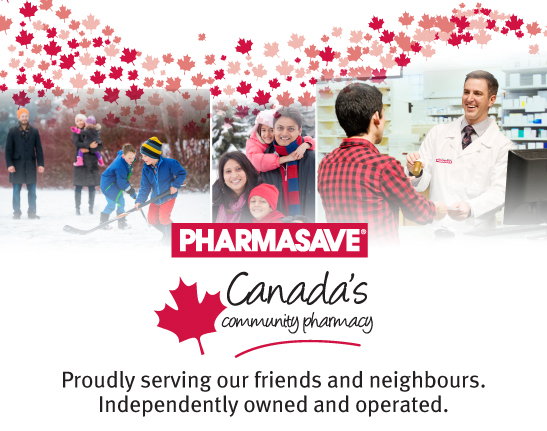
April Blog – Sleep, getting a good nights worth
April – Sleep: Getting a Good Night’s Worth
Sleep: Getting a Good Night’s Worth
Like good nutrition and exercise, adequate sleep is part of a healthy lifestyle. Sleep deprivation is an unrecognized cause of many problems, including accidents, illness, and poor job performance. It affects many people, and it’s on the rise. Find out how your sleep habits could be affecting you, and what you can do to get a good night’s sleep.
Are you getting enough sleep?
How much sleep do you really need? In general, most adults need about 7 hours of sleep per night. Children and adolescents need even more – around 9 or 10 hours per night. However, the amount of sleep people need varies widely, ranging from 5 to 10 hours per night. The important thing is to find out how much sleep you need to stay healthy and alert, and then try to get this amount of sleep each night.
The right amount of sleep is the amount that lets you wake up feeling refreshed and well. You may be able to function on the amount of sleep you are getting now, but it still may not be enough for you to reach your full potential. Here’s how to tell if you’re not getting enough sleep:
- You need an alarm clock to wake up.
- You sleep longer and better on weekends.
- You have trouble getting out of bed in the morning.
- You feel tired during the day.
- You have bags or dark circles under your eyes.
- You doze off while sitting in a public place, such as a movie theatre or meeting.
- You get drowsy while driving.
- You have trouble concentrating.
- You have early morning headaches.
If you notice any of these signs, you may not be getting enough sleep. Try to gradually increase the amount of sleep you get each night until you find the right amount – you’ll know that you’ve got it when these signs start to go away. If you haven’t been getting enough sleep for a long time, it may take a while to recover. If you’ve tried everything and still have trouble getting a good night’s sleep, talk to your doctor. You may have a sleep disorder.
Problems caused by sleep deprivation
Some people choose to “get away” with less sleep, and this attitude is often rewarded in our society. But lack of sleep can actually make you less productive, even if you feel as though you’re getting more done. And sleep deprivation can do much more than hurt your productivity – it can damage your health as well.
Sleep helps your body to repair itself. It also helps your mind absorb and “file” the day’s learning. When we deprive ourselves of sleep, we notice the effects both mentally and physically. In the short term, these effects include:
- fatigue
- irritability
- careless mistakes
- difficulty concentrating
- slower reaction times
- increased stress
These short-term effects can affect our relationships, our performance at work or school, and our ability to enjoy life. They may even increase the risk of injury and accidents at work or on the road.
After only a few days of sleep deprivation, the body undergoes changes similar to “fast-forward” aging: memory loss, metabolism problems (with sugar and hormones), and poor athletic performance. If sleep deprivation continues over the long term, it increases the risk of more serious health problems, such as:
- a weakened immune system
- diabetes (the body cannot process sugar properly)
- depression
- high blood pressure
- obesity
The good news is that you can prevent these long-term problems by recognizing the early signs that you aren’t getting enough sleep, and increasing the amount of sleep you’re getting until you feel well rested. But remember: the greater the “sleep debt” that you have, the longer it will take to recover.
Sleep disorders
If you’ve tried everything and still don’t seem to be getting enough sleep, speak with your doctor. Your sleep problems may be due to a medical condition or one of the medications you are taking. Most sleep problems can be diagnosed and treated safely and effectively.
Some of the most common sleep disorders are:
- sleep apnea (a disorder in which people stop breathing for 10 seconds or more, sometimes hundreds of times every night)
- insomnia (difficulty falling asleep, frequent awakenings during the night, or waking early)
- restless legs syndrome (uncomfortable leg sensations and the urge to move the legs occurring whenever the body is at rest, interrupting sleep)
- narcolepsy (a chronic brain disorder causing sudden, uncontrollable episodes of sleep at inappropriate times, such as while driving, eating, or talking)
- periodic limb movements (recurrent movements of the legs, feet, or toes during sleep, causing sleep interruptions throughout the night)
You may want to keep a “sleep diary” for a couple of weeks before your visit to the doctor. This will help you describe your problem thoroughly to the doctor. It may also help your doctor identify patterns in your sleep. Your “sleep diary” could include:
- the number of hours you are sleeping each night
- when you went to bed and got up in the morning (or when you got up to start your next day if you do shift work)
- days when you had trouble falling asleep, woke up frequently during the night, or woke up earlier than you would have liked to
- nights when you were snoring or moving in your sleep
- nights when you woke up gasping for breath or snoring
- whether you felt tired or well-rested each day
- the number of cigarettes or drinks that you had each day, and approximately when you had them
- your stress level during the day
- any new life events or schedule changes
You should also make note of your current medical conditions and medications. Before you visit your doctor, it is helpful to make a list of the questions you would like to ask and the information you would like to find out from the doctor. Many people realize they have forgotten to ask an important question only after they’ve left the doctor’s office. You may want to bring your bed partner to your doctor’s appointment (or at least talk to them before the appointment) – this person has seen (and heard!) you sleeping and may be able to help your doctor diagnose and treat any sleep disorders you may have.
Most sleep disorders can be safely and effectively treated. Finding and treating a sleep disorder could make a huge difference in your life!
Tips on getting a good night’s sleep
Do you wake up feeling refreshed, alert, and ready to meet the challenges of the day? If not, here are some tips to help you get there:
- Keep regular hours. Try to go to bed and wake up around the same time every day, including weekends.
- Avoid taking long naps during the day. These could make it harder to fall asleep at night. A short nap, however, is okay as long as you can sleep well during the night.
- Develop a “sleep ritual.” If you do the same things before you go to bed each night, it will train your body to get ready for sleep.
- Take some time to relax and unwind before you go to sleep. You may try stretching, relaxation exercises, a hot shower or bath, meditation, or a glass of hot milk help you to relax and prepare for sleep. Avoid activities that may be emotionally upsetting a few hours before you go to bed.
- Avoid caffeine and medications that may keep you awake (e.g., stimulants) in the evening. Check with your doctor or pharmacist to see if your medication may be keeping you awake.
- If you are taking a diuretic (such as furosemide or hydrochlorothiazide), take it in the morning. Diuretics increase urination, and this may keep you up at night if you take them later in the day.
- Avoid drinking alcohol right before bedtime. Alcohol can interrupt sleep, leading to a poor quality of sleep.
- If you smoke, consider quitting. Smokers have more trouble falling asleep, and wake up more often during the night, than non-smokers.
- Make your bedroom “sleep-friendly.” Your room should be kept cool, dark, and quiet. If you are bothered by the noises around you, try using a pair of foam earplugs, a fan, or a white noise generator to block out the noise.
- Get a comfortable mattress. If you wake up feeling stiff and sore, or if you aren’t sleeping as well as you were a year ago, it may be time for a new mattress. A good mattress should gently support all points of your body and give you enough room to move freely.
- Exercise regularly. This can help relieve stress and make it easier for you to sleep. Don’t exercise too close to bedtime if you find this makes it harder for you to sleep.
- Don’t feel guilty about going to bed. Think of sleep as an investment in your health and productivity.
- Avoid watching TV or reading in bed. Your bed should be reserved for sleep and intimacy.
- If you are having trouble sleeping, get out of bed to read or watch TV. Return to bed when you start to feel tired. Try not to look at the clock.
If you try these tips and still find that you’re having trouble sleeping, talk to your doctor. You may have a medical condition that is affecting your sleep. Also, check with your pharmacist to find out if the medications you are taking could be affecting your sleep.
Ask Your Pharmacist
Q: Is it safe to use natural vitamins and supplements during treatment for cancer?
A: During cancer treatment, it’s important to boost your immune system and people often turn to supplements thinking these will help. But, as some supplements have the potential to actually interfere with your cancer treatment, you should be cautious. No matter how harmless you think vitamins and supplements might be, check with your pharmacist or doctor about possible interactions with your other medications.
Do you have more questions? Speak with your Live Well Pharmacist.
Health Tip
If you are having issues with your digestion, you may experience uncomfortable symptoms like gas, bloating, irregularity and heartburn. Boost your digestive system and overall health by including probiotic foods such as yogurt and other cultured dairy products in your daily diet or consider making probiotic supplements part of your everyday routine.
All material © 1996-2013 MediResource Inc. Terms and conditions of use. The contents herein are for informational purposes only. Always seek the advice of your physician or other qualified health provider with any questions you may have regarding a medical condition.



